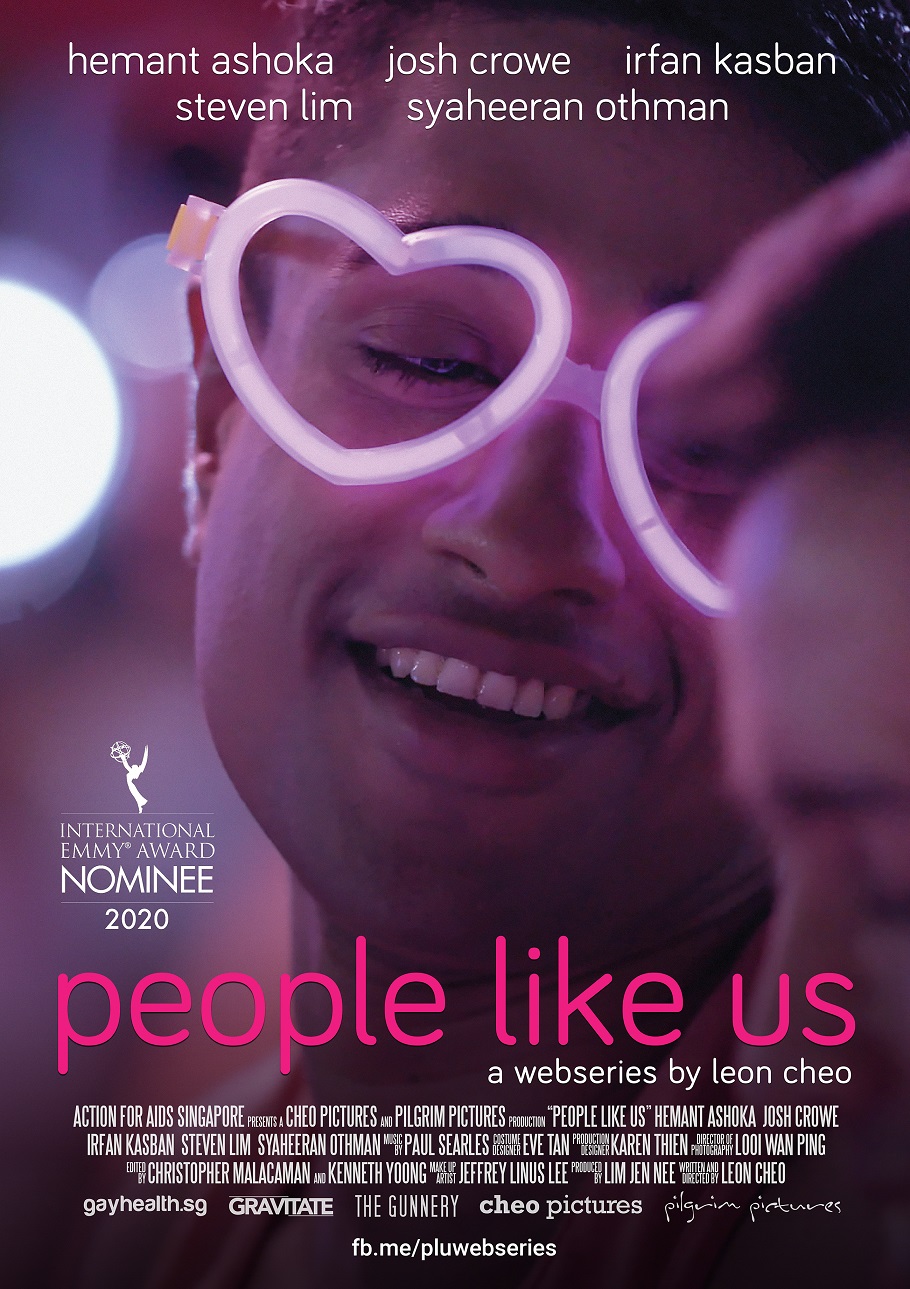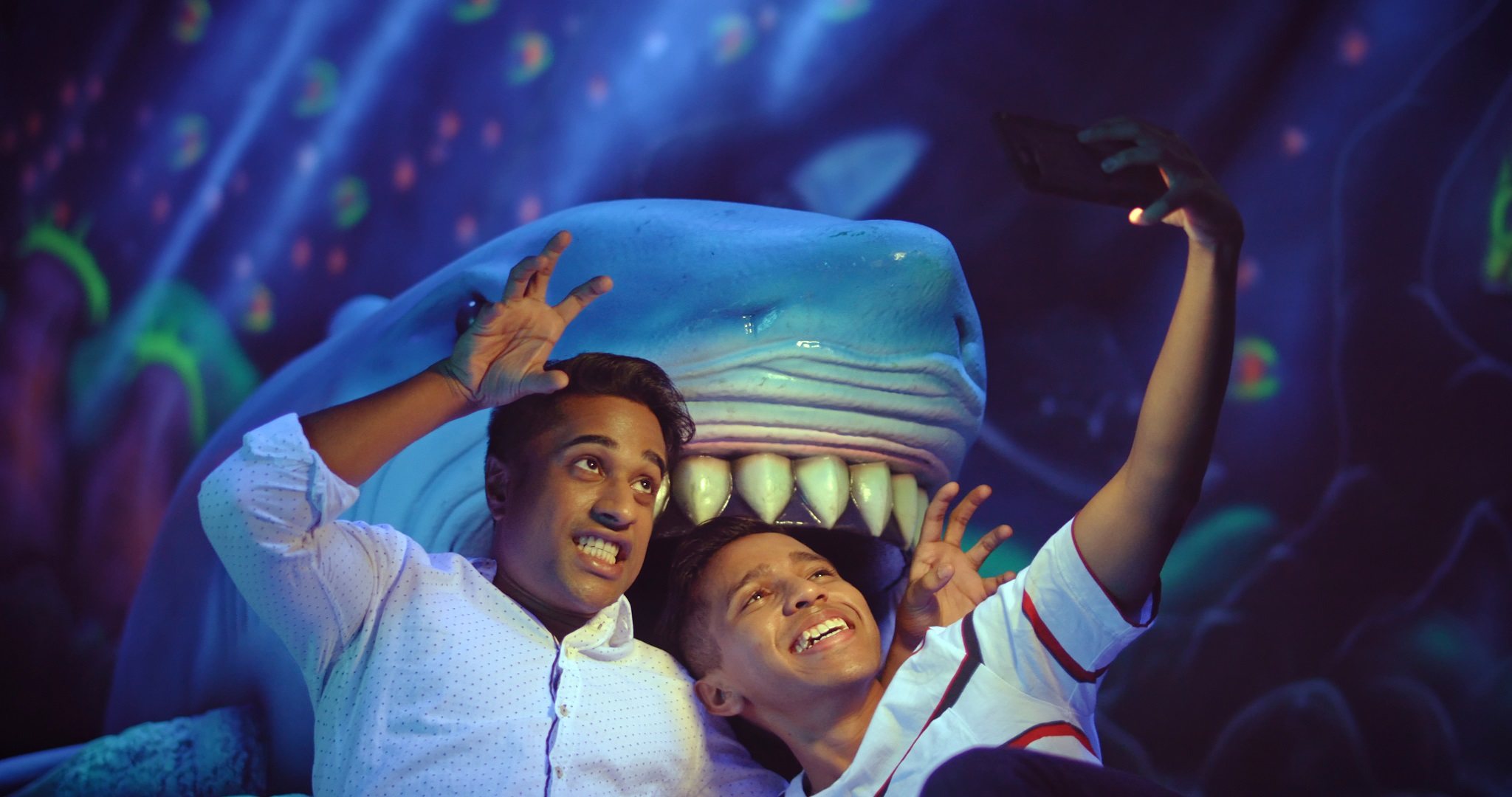
The second season of the series portrays five Asian gay men and how they handle their sexuality and life in Singapore. People like us deals with various problems such as coming out, sexually transmitted infections (STI) and acceptance, in the hope that the series can help change the hearts and minds of the people and government of Singapore. The LGBTQ series was nominated at die Seriale 2021 in the category Best Ensemble Cast. We had an interview with director and writer Leon Cheo.
Die Seriale: How did you come up with the topic of an LGBTQ series? And are you entering a new field of web series in Singapore?
Leon Cheo: So, I’m gay myself and I’ve been doing promotional videos for Pink Dot which is featured in Season 2. Pink Dot is an LGBTQ rights organisation that has been happening in Singapore the past 13 years. I produced and recorded some videos for them before and when I was doing some videos in 2014, I believe that’s when Action for Aids or gayhealth.sg asked me. They said they had this idea of doing a web series that will reach out to the gay community. They wanted to find a filmmaker who will be able to do that and I totally agreed. That was really how the project started. I always dreamed of going back to making stories about LGBTQ characters because some of my early short films were about that, so this was a dream come true. I don’t think I was the first web series in Singapore, there might have been a few before me, but I would say it is a purely gay web series, so the first gay web series.
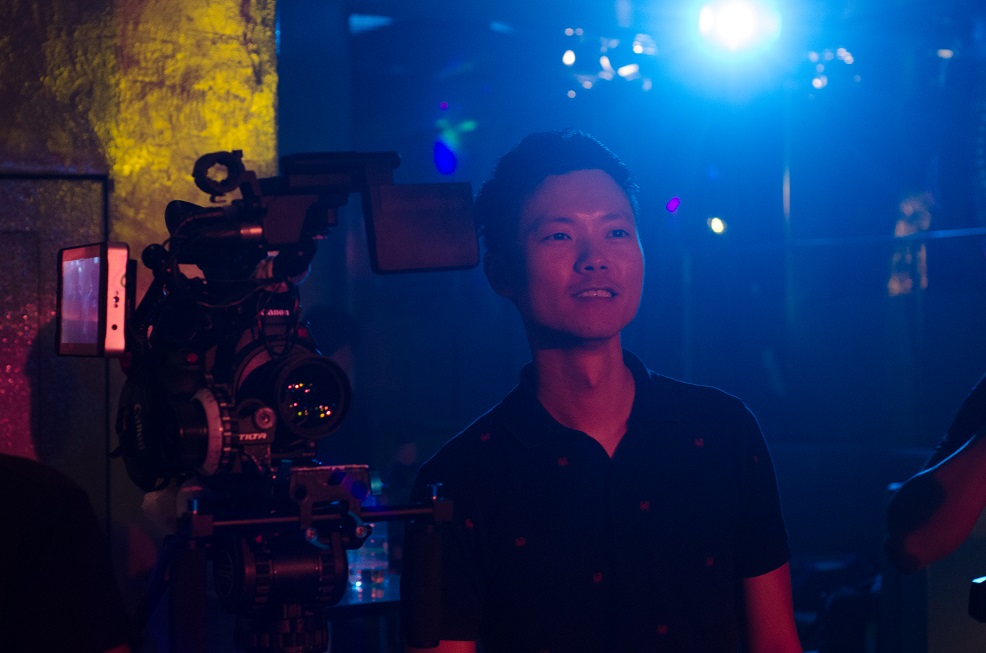
Leon Cheo © Leon Cheo
Die Seriale: Could you briefly describe the style of the series?
Leon Cheo: When I was thinking about season one and thinking about making the show’s style, I wanted to go for was something that was going to be more observational. It’s a style where the camera is in the back and doesn’t really intrude on the scenes. There is some sort of documentary feel to it. I was leaning away from the camera being another presence so there is no big camera movement. A camera that just observes the lives of the characters and just provides a window to these characters.
Die Seriale: I noticed during the series that background music was mostly omitted. Was this done to create a particular mood?
Leon Cheo: Having music like a score and non-diegetic music was something I didn’t want to do. If there was music or some kind of background music it has to be explained, maybe they are listening to music or they are in a club. I didn’t want a score to tell the audience what they are supposed to feel and that’s also back to the whole observational feel of it. I didn’t want the director to be too obvious in terms of the storytelling so I guess it has a quite real feel to the series so that people can get an as realistic sense as possible. In the end of each episode each credit has its special song or a piece of music that was specially selected or composed and all the feelings end up there.
Die Seriale: Since People like us was nominated in the category of Best Ensemble Cast, I am of course interested in how the actors were chosen.
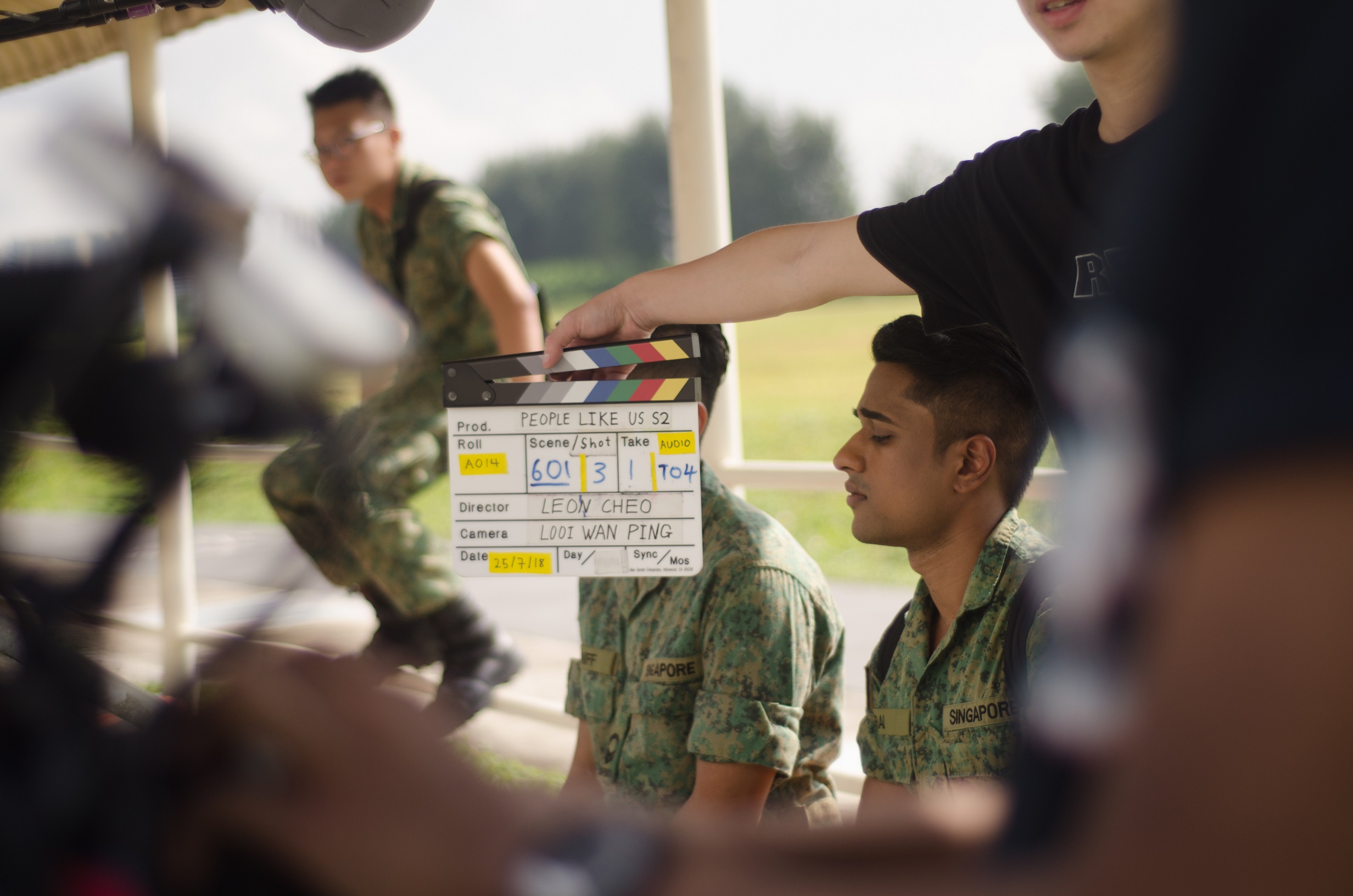
Shooting People like us: Hemant Ashoka, Syaheeran Othman © People like us
Leon Cheo: There was a traditional casting process to find the forming characters but not everybody was found with that traditional casting process. Actually, I believe that the only one who was found through the casting was Josh Crowe who played the character of Joel. Another character for example Ridzwan is played by Irfan Kasban, who is a friend of mine and an actor and theatre director. I basically had him in mind for this character and I offered him the role. After a few meetings and discussions, he accepted the role and that’s how he was casted. I think also in Singapore it’s quite challenging to cast sometimes because the actor pool is not very big. I was also afraid that I would not be able to cast a Muslim actor who will play that part because of more conservative reactions to this actor. And I believe he has received bad reactions but it hasn’t been too negative. Some of it has been quite positive as well which is the whole point of having an Indian character. I also wanted to make a point to have characters who are minorities and also to show characters who are gay as minorities and try to reflect some of their experiences. I met Hemant Ashoka who played Rai in a bar. We had a mutual friend who was with me and we were introduced. I just randomly asked if he did any acting because he looked very suitable for the role and asked him to come down for an audition. Finally, the character of Isaac was played by Steven Lim. He was part of this big TV series in the 90’s in Singapore but he hasn’t been living there for a while. One day there was this article in the newspaper saying “Where are these people now?” and my producer sent me the article and suggested Steven. So, I asked him whether he could do the audition. I just wanted to get a sense of how the actor is and because we had a good vibe, we chose him for the role. With season 2 there is Hanif as a new main character. Syaheeran Othman who played the role came in for the traditional casting round and because I wrote it to be an Indian character, he was the most suitable. He hadn’t really had that much acting experience but I really liked his rawness and ability to not act too much.
Die Seriale: Did you put an emphasis on love scenes? These scenes are depicted very aesthetically and in detail. What is the significance of this?
Leon Cheo: One of the designing ideas I had while I was doing the series was to film these intimate sex scenes and present them in a very positive and neutral way. LGBTQ content is not easily available in Singapore and TV shows and series are not that common. If there are LGBTQ characters on television or in movies sometimes, they can be stereotypical, too campy, or too negative as well. The gay characters are presented in a bad light. So, one of my goals in the series was to show the human and full side of LGBTQ people. I wanted to show scenes in a sense, in their full glory. I wanted them to be frank, I wanted them to be sexy and also quite real. I didn’t want to shy away from all these aspects because a lot of issues that gay men and bi men experience is so much linked to sexuality and the act in itself, and also because we are talking about issues in condom use and STIs.
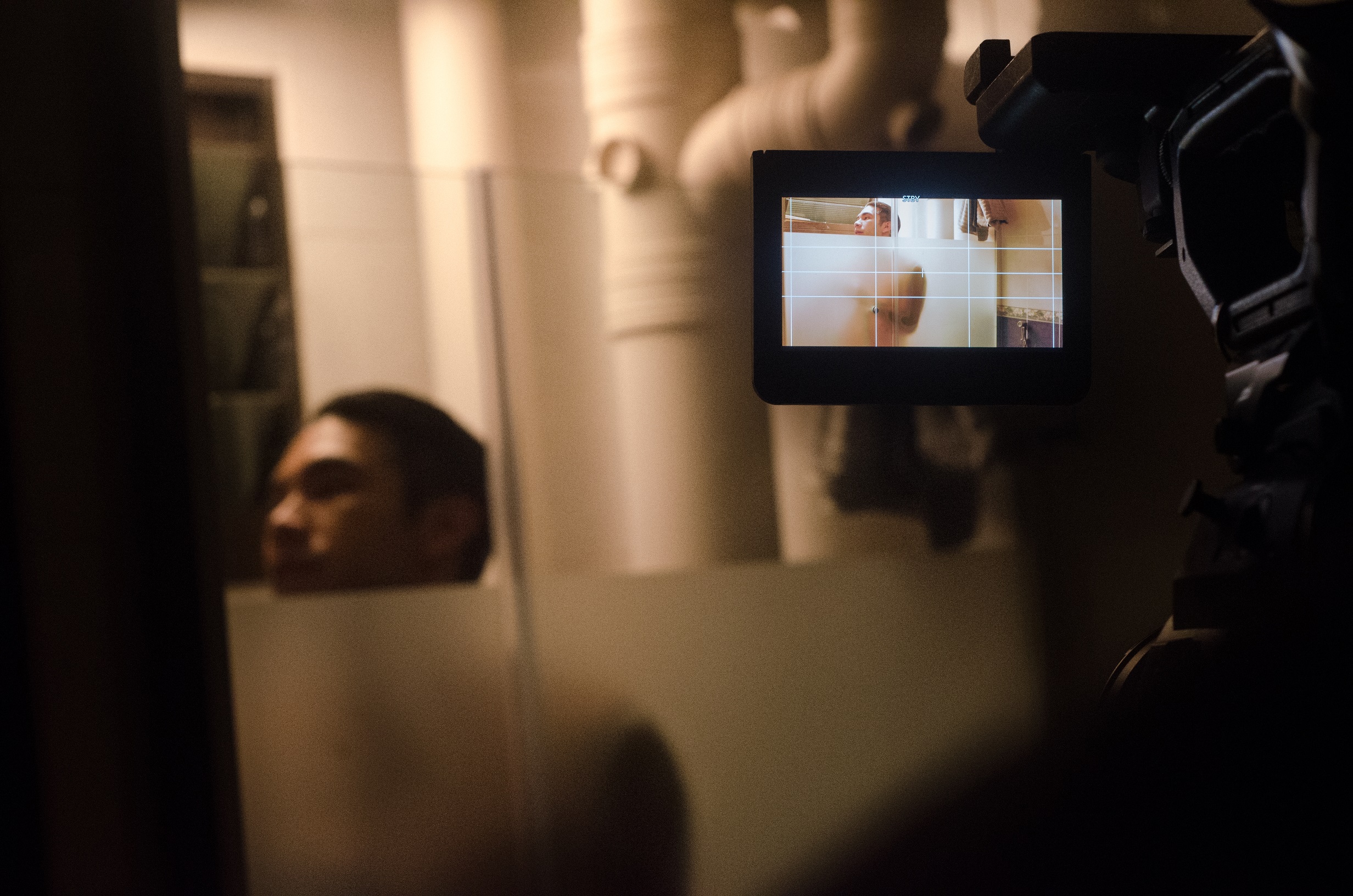
Shooting People like us: Irfan Kasban © People like us
Die Seriale: In the series, Rai’s mother confronts him about the Pink Dot Flyer. Does he expect her to believe that he is straight, or is he worried about how she will react to his homosexuality and therefore doesn’t want to tell the truth?
Leon Cheo: I’m not sure if Rai expects his mom to believe that he is straight. He is definitely worried how she will react to his homosexuality. Rai is not ready to come out properly and that’s why he says that he is just supporting the cause. I guess when she sees the flyer she is suspicious that her son is gay but isn’t sure because they just don’t have that direct conversation. This is the tension I was trying to create with the fact that one gay person hasn’t come out to his parents and the tension of having different statuses of coming out, like friends, parents, family or just yourself. The three moms that we see are different aspects of how they would deal with their children being gay or LGBTQ.
Die Seriale: What is the extent of the LGBT community in Singapore? Do the characters reflect the problems in social and family terms in Singapore?
Leon Cheo: Pink Dot only really came in 2008⁄09 and before that there have been some smaller organisations trying to fight for LGBTQ rights. During the 80’s and 90’s the government of Singapore was not caring about the issues and these upsetment of the population. Sometimes there have been police raids at clubs, bars and other cruising places. In the 2000’s the Speakers corner in the Hong Lim Park was launched where also Pink Dot is held in. This park is a space where citizens and residences can protest without a permit. With the park Pink Dot came about and that’s only really when LGBTQ rights came into full bloom. Actually, one of the reasons why the event came about is because in 2007 the government revealed the penal code 377A which is a law that criminalises men for having sex with each other in private and in public. Then there was a huge open debate about the law and a big discussion whether to keep it or to not keep it. Unfortunately, the law stayed in the books ever since and there have been several constitutional challenges to the law since the first debate. The law only affects gay men but it is really seen as a law that affects everyone. It basically legitimatises censorship, it allows sex education in school to exclude LGBTQ experiences, it allows no funding of LGBTQ stories through public funds. Obviously also in countries with even stricter laws LGBTQ people exist and they will always find a way to live and love but of course with challenges and risks. With this law in Singapore, it actually penalises you with jail or fines but in 2007 the prime minister said that the law is still on the books but it is not going to be enforced. The characters in the series reflect the problems in terms of coming out for example. I think for the generation of millennials or Gen Z’s, coming out is much easier these days. Talking about sexual rights or making shows, also in terms of the internet, it allows them to educate themselves privately. Without the internet, Singapore wouldn’t have come to this point and we wouldn’t be able to show the series on TV or in cinemas. I tried to get an age rating for the series as part of a film festival in Singapore but the classification found the sex scenes too long. In general, LGBTQ films and series can pass the classification process but with the highest age rating, no matter how many sex scenes there are and they can be censored as well.
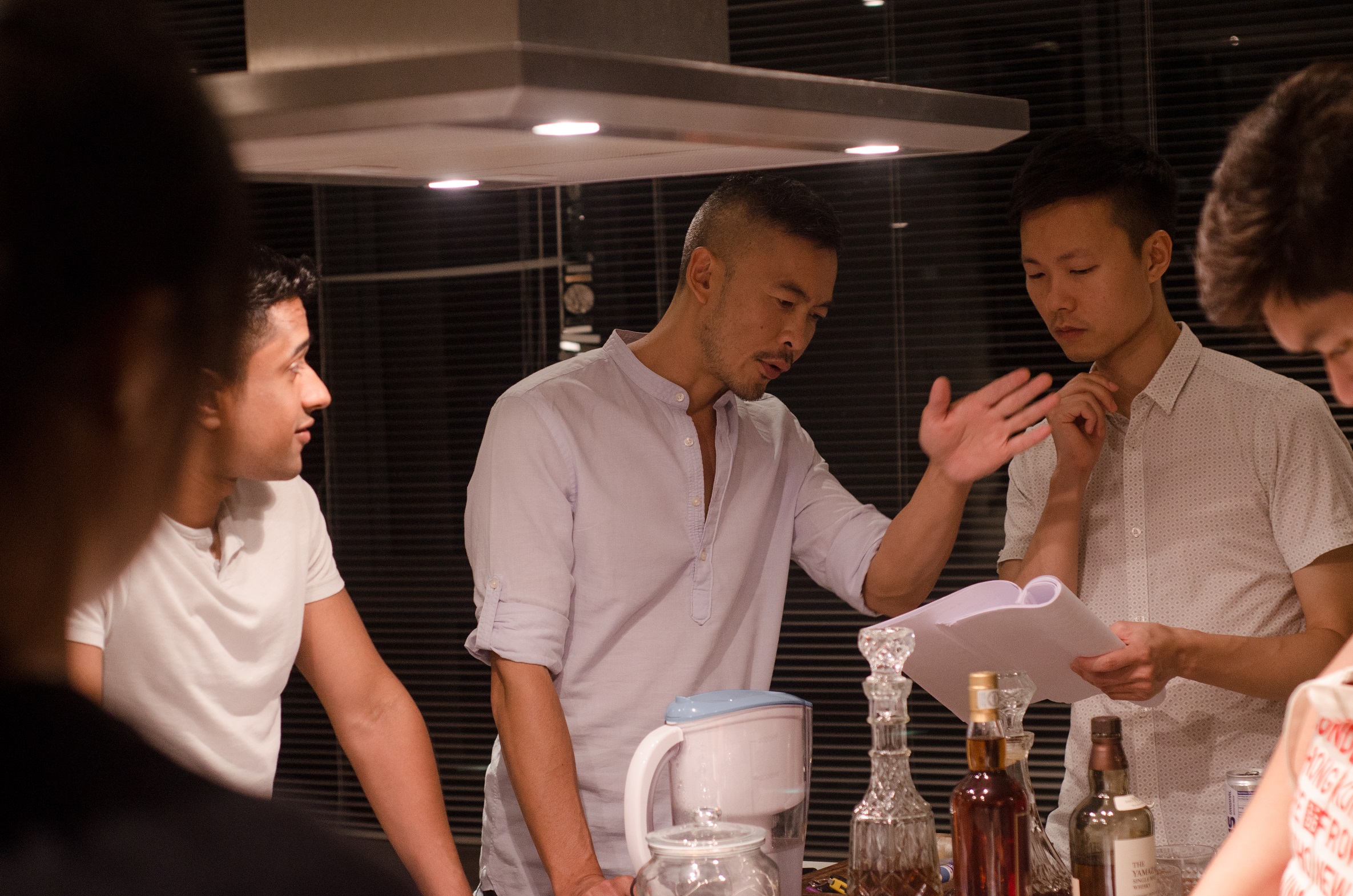
Leon Cheo, Hemant Ashoka, Steven Lim on set © People like us
Die Seriale: Have you noticed any changes since the release of the series in 2019 in terms of society, development and acceptance?
Leon Cheo: I think that’s hard for me as one person to observe. I’ve met people who are younger and in their 20’s and talked to them about other LGBTQ projects. It does seem like coming out is slightly easier. It is never easy with family but coming out to friends is easier. I like to think that it is easier especially for younger generations. For sure the internet has helped in terms of getting information as well as meeting like-minded people.
Die Seriale: Can we expect a third season? How might this be implemented during the corona pandemic?
Leon Cheo: I’m thinking of what could be the story lines in the third season but there is honestly nothing concrete at this time. I’m a little busy with some other projects right now but I do want to sit down and pitch a third season to Action for Aids. Based on the ending of season two I definitely want to do a third season which will be the last season to conclude the stories of these characters. At the moment I don’t see addressing the pandemic, it probably exists in a time just before the pandemic but it will be hard because some of the settings that we filmed in don’t exist anymore.
Die Seriale: What reactions and reviews have you received for your series? Have they differed between Singapore and the rest of the world?
Leon Cheo: The reactions from Singapore and the world have been quite the same and quite good. The limited reactions we get publicly from Singapore have been quite good as well. Sometimes we get reviews or we get featured. From time to time there will be negative YouTube comments but I guess that’s normal, even with a non-LGBTQ show. But the negative comments we get are mostly from the more conservative side of the population. I’m very glad for the positive reviews, comments and reactions from Singapore and the world. The best comments are the comments from more conservative countries. They have a bigger challenge in terms of what is Singapore challenging. Having a Muslim character in the series is something some people connect with a lot. We get comments where they thank us for the series and having this quite rare character who is gay and Muslim. The whole point is to create discussion and talk about the issues. The good thing is that we didn’t get many negative comments and reviews towards the show or the actors also because it is a TV show and no activist platform. The main percentage of the series is to be entertaining and not to be political.
Die Seriale: Can you tell me something about how widespread and successful web series are in Singapore and since when this format has become popular?
Leon Cheo: I would say now it is pretty widespread. In the past two or three years it came in attraction as a format. The local TV station hasn’t really got into it until recently where Web series have started. I would say now it is becoming very popular and even brands are making web series as example a bank in Singapore. The local TV station also starts to make shorter form content or the platform Viddsee which is making web series as well. The field is definitely growing and funding for it has been possible. I think it is a good step for filmmakers like myself.
Die Seriale: Thank you very much for such a detailed and interesting interview.
Interview: Johanna Jusek
People like us - season 2 (2019)
Country: Singapore
Genre: Drama, LGBTQ
Runtime: 6 x 8-12 min
Director: Leon Cheo
Writer: Leon Cheo
Producer: Jen Nee Lim
Cast: Syaheeran Othman, Steven Lim, Josh Crowe, Hemant Ashoka, Irfan Kasban, Grace Kalaiselvi, Mastura Ahmad, Janice Koh
